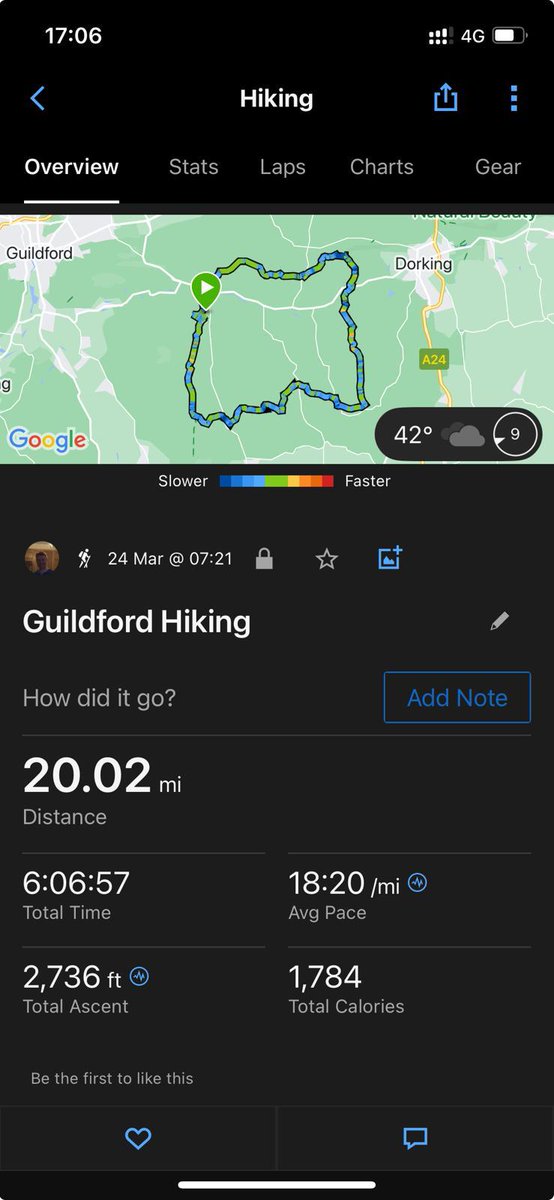Privacy Statement
Privacy notice
Learning Partners Academy Trust is a multi-academy trust, comprising primary and secondary schools and related business units. We are a registered data controller, trading under the following names:
|
Learning Partners Boxgrove Primary School Fullbrook School Fullbrook Sports Centre George Abbot School |
George Abbot SCITT Guildford County School Guildford Grove Primary School Kings College Guildford Loseley Fields Primary School |
Northmead Junior School Pirbright School Sandfield Primary School Shalford Infant School Stoughton Infant and Nursery School Surrey Maths School (SuMS) |
We respect the privacy of you and your child when you use our services and are committed to complying with privacy legislation.
The information below is what is referred to as a ‘Privacy Notice’ which explains how we use and protect your personal information. The trust has a Data Protection Officer whose role it is to ensure that any personal information processed by the trust is processed fairly and lawfully (respecting your rights and ensuring we follow the law). If you have any concerns or questions regarding how we look after your personal information, please contact the Data Protection Officer.
Contact Details:
Data Protection Officer e: DPO@learningpartners.org
Child Friendly Privacy Notices
We have created these child-friendly privacy notices, so that your child can understand the decisions you have made on their behalf, regarding data privacy.
Why we use your personal information
Why we use personal information
We may need to use some information about you to:
- deliver services and support to you;
- manage those services;
- train and manage the employment of our workers who deliver those services;
- help investigate any worries or complaints you have about your services;
- budget and keep track of spending on services;
- check the quality of services; and
- to help with research and planning of new services.
What are our legal reasons for processing personal information?
There are a number of legal reasons why we need to collect and use personal data. Each privacy notice from the list below explains which legal reason is being used.
- CCTV Privacy Notice
- Biometrics Privacy Notice
- Photos and Videos Privacy Notice - Employees/Governors
- Photos and Videos Privacy Notice - Pupils
- Processing of Employee/Trainee Data Privacy Notice
- Processing of Governor/Trustee Data Privacy Notice
- Processing of Pupil and Parent Data Privacy Notice (statutory)
- Processing of Volunteer Data Privacy Notice
- School Extra Curricular Privacy Notice
Generally we collect and use personal information in the following circumstances:
- Where you, or your legal representative, have given consent
- Where you have entered into a contract with us
- Where it is necessary to perform our statutory duties
- Where it is necessary to protect someone in an emergency
- Where it is required by law
- Where it is necessary for employment purposes
- Where you have made your data publicly available
- Where it is necessary to establish, exercise or defend a legal claim
- Where it is in the substantial public interest
- Where it is necessary to protect public health
- Where it is necessary for archiving public interest material, for research, or for statistical purposes
Where we are using your consent to process your personal data, you have the right to withdraw that consent at any time.
What is personal information?
Personal information is records that can identify and relate to a living person. This can include information that when put together with other information can then identify a person.
What are special categories of information?
This is personal information that needs more protection due to its sensitivity. This information is likely to include:
- sexuality and sexual health
- religious or philosophical beliefs
- ethnicity
- physical or mental health
- trade union membership
- political opinion
- genetic/biometric data
How we limit the use of personal information
Where necessary, we process personal data to deliver our services effectively; but wherever possible, the data that we process will be anonymised, pseudonymised or de-personalised. This means the information can no longer identify a person.
When using personal data for research purposes, the data will be anonymised/pseudonymised to avoid the identification of a person, unless you have agreed that your personal information can be used for the research project.
We do not sell personal data to any other organisation for the purposes of selling products.
Your privacy rights
The law provides you with a number of rights to control the processing of your personal information:
Accessing the information we hold about you
You have the right to ask for all the information we have about you. When we receive a request from you in writing, we must normally give you access to everything we have recorded about you. However, we will not let you see any parts of your record which contain:
- Confidential information about other people; or
- Data an information professional thinks will cause serious harm to your or someone else’s physical or mental wellbeing; or
- If we think that the prevention or detection of crime may be adversely affected by disclosing data to you.
This applies to paper and electronic records. If you ask us, we will also let others see your record (except if one of the points above applies). If you cannot ask for your records in writing, we will make sure there are other ways you can apply. Your request can be dealt with as below
Subject Access Request:
Service Request Database – Statutory Request
Changing information you believe to be inaccurate
You should let us know if you disagree with something written on your file. We may not always be able to change or remove the information; however, we will correct factual inaccuracies and may include your comments in the records. Please use the contact details above to report inaccurate information.
Asking for your information to be deleted
In some circumstances you can request the erasure of the personal information used by us, for example:
- Where the personal information is no longer needed for the purpose for which it was collected
- Where you have withdrawn your consent to the use of your information (where there is no other legal basis for the processing)
- Where there is no legal basis for the use of your information
- Where erasure is a legal obligation
Where personal information has been shared with others, we shall make every reasonable effort to ensure those using your personal information comply with your request for erasure.
Please note that the right to erasure does not extend to using your personal information where:
- It is required by law
- It is used for exercising the right of freedom of expression
- It is in the public interest in the area of public health
- It is for archiving purposes in the public interest, scientific or historical research purposes, or statistical purposes where it would seriously affect the achievement of the objectives of the processing
- It is necessary for the establishment, defense or exercise of legal claims.
Restricting what your information is used for
You have the right to ask us to restrict what we use your personal data for, where one of the following applies:
- You have identified inaccurate information, and have notified us of this
- Where using your information is unlawful, and you wish us to restrict rather than erase the information
- Where you have objected to us using the information, and the legal reason for us using your information has not yet been provided to you
When information is restricted it cannot be used other than to securely store the data, and with your consent, to handle legal claims, protect others, or where it is for important public interests of the UK.
Where restriction of use has been granted, we will inform you before the use of your personal information is resumed.
You have the right to request that the trust stop using your personal information for some services. However, if this request is approved, this may cause delays or prevent us delivering a service to you. Where possible we will seek to comply with your request, but we may need to hold or use information in connection with one or more of our legal functions.
Computer based decisions about you and if you are ‘profiled’
You have the right to object about decisions being made about you by automated means (by a computer and not a human being), unless it is required for any contract you have entered into, required by law, or you have consented to it. You also have the right to object if you are being ‘profiled’. Profiling is where decisions are made about you based on certain things in your personal information. If and when we use your personal information to profile you, you will be informed.
If you have concerns regarding automated decision making, or profiling, please contact the Data Protection Officer who will be able to advise you about how your information is being used.
Who will we share your personal information with?
The law provides you with a number of rights to control the processing of your personal information:
We use a range of companies and partners to either store personal information or to manage it for us. Where we have these arrangements there is a contract, memorandum of understanding or information sharing protocol in place to ensure that the organisation complies with data protection law. When considering new arrangements, we complete privacy impact assessments before we share personal information to ensure their compliance with the law.
Sometimes we have a legal duty to provide information about people to other organisations, e.g. Child Protection concerns or Court Orders.
We may also share your personal information when we feel there is a good reason that is more important than protecting your confidentiality. This does not happen often, but we may share your information:
- For the find and stop crime or fraud; or
- if there are serious risks to the public, our staff or to other professionals; or
- to protect a child.
The law does not allow us to share your information without your permission in these circumstances, unless there is proof that someone is at risk or it is required by law.
This risk must be serious before we can go against your right to confidentiality. When we are worried about physical safety or we feel that we need to take action to protect someone from being harmed in other ways, we will discuss this with you and, if possible, get your permission to tell others about your situation.
We may still share your information if we believe the risk to others is serious enough to do so.
There may also be rare occasions when the risk to others is so great that we need to share information straight away. If this is the case, we will make sure that we record what information we share and our reasons for doing so. We will let you know what we have done and why as soon as possible, or if we think it is safe to do so.
How do we protect your information?
We will do what we can to make sure we hold personal records (on paper and electronically) in a secure way, and we will only make them available to those who have a right to see them. Our security includes:
- Encryption allows information to be hidden so that it cannot be read without special knowledge (such as a password). This is done with a secret code or cypher. The hidden information is said to be encrypted.
- Pseudonymisation allows us to hide parts of your personal information from view so only we can see it. This means that someone outside of our trust could work on your information for us without ever knowing it was yours.
- Controlling access to systems and networks allows us to stop people who are not allowed to view your personal information from getting access to it.
- Training for our staff allows us to make them aware of how to handle information and how and when to report when something goes wrong.
- Ways for us to access your information should something go wrong and our systems not work, including how we manage your information in event of an emergency or disaster.
- Regular testing of our technology and processes including keeping up to date on the latest security updates (commonly called patches).
If your information leaves the country
Sometimes, for example where we receive a request to transfer our records to a new organisation, it is necessary to send that information outside of the UK. In such circumstances additional protection will be applied to that data during its transfer, and where the receiving country does not have an adequacy decision from the European Commission, advice will be sought from the Information Commissioners Office prior to the data being sent.
How long do we keep your personal information?
For each reason why we use your personal information there is often a legal reason for why we need to keep it for a period of time. We try to capture all of these and detail them in what’s called a ‘retention schedule’. This schedule lists for each service how long your information may be kept for.
Where can I get advice?
Contact Details:
Data Protection Officer e: DPO@gepacademies.com
For independent advice about data protection, privacy and data sharing issues, you can contact the Information Commissioner’s Office (ICO) at:
Information Commissioner’s Office
Wycliffe House
Water Lane
Wilmslow
Cheshire SK9 5AF
Tel: 0303 123 1113 (local rate) or 01625 545 745 if you prefer to use a national rate number
Alternatively, visit ico.org.uk or email casework@ico.org.uk.
Cookies & how you use our websites
To make our websites easier to use, we sometimes place small text files on your device (for example your iPad or laptop). These are known as ‘cookies’. Websites of large organisations also do this on a regular basis.
They improve things by:
- remembering the things you’ve chosen, so you don’t have to keep re-entering them whenever you visit a new page
- remembering data you’ve given (for example, your address) so you don’t need to keep entering it
- measuring how you use the website so we can make sure it meets your needs.
By using our websites, you agree that we can place these types of cookies on your device.
We do not use cookies on our websites to collect information about other websites you visit (often referred to as privacy intrusive cookies).
Our cookies aren’t used to identify you personally. They’re just here to make the site work better for you. Indeed, you can manage and/or delete these files as you wish.
To learn more about cookies and how to manage them, visit AboutCookies.org
How you use our websites (‘Google Analytics’)
We use Google Analytics to collect information about how people use our sites. We do this to make sure they meet peoples’ needs and to understand how we can make our websites work better.
Google Analytics stores information about what pages on this site you visit, how long you are on the site, how you got here and what you click on while you are here. We do not collect or store any other personal information (e.g. your name or address) so this data cannot be used to identify who you are.
| Attribute | Details of Attribute |
| Name of Cookie | Unique Name of the Cookie |
| Value of Cookie | Generated data based on web page |
| URL/Path of Cookie | To ensure only valid websites can use this Cookie |
| Domain in the Cookie | To ensure only valid websites can use this Cookie |
| Expiration date of Cookie | If a cookie has expired, your browser will delete the Cookie |
| Secure Flags | A security measure to prevent attacks on the Cookie |
We also collect data on the number of times a word is searched for on the site and the number of failed searches. We use this information to improve access to the site and to identify gaps in the content and see if it is something we should add to the site.
Unless the law allows us to, we do not:
- share any of the data we collect about you with others, or
- use this data to identify individuals.
Other people’s cookies
We sometimes use videos from YouTube and feeds from other websites such as Facebook and Twitter. These websites place cookies on your device when watching or viewing these pages.
Below are links to their cookie policies:
Turning off cookies
You can stop cookies being downloaded on to your computer or other device by selecting the appropriate settings on your browser. If you do this, however, you may not be able to use the full functionality of this website.
There is more information about how to delete or stop using cookies on AboutCookies.org. If you wish, you can also opt out of being tracked by Google Analytics.
Further guidance on the use of personal information can be found at ico.org.uk.















